Research: Fighting heat stress in broilers
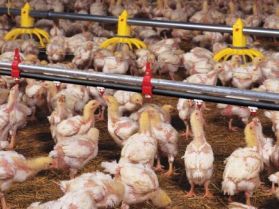
Heat stress is still an important cause of performance loss in broilers. Chinese researchers investigated the effect of glutamine and buteric acid and in India yeast was used to reduce heat stress effects.
Chinese researchers investigated the effects of dietary glutamine and gamma-aminobutyric acid on performance, carcass characteristics and serum parameters in broilers under circular heat stress.
A total of 360 21-day-old Arbor Acres male chicks were randomly assigned to five treatment groups (6 replicates of 12 birds per cage).
The positive control (PC) broilers were kept in a thermoneutral chamber (average 23°C) and fed with a basal diet. The other four groups were kept in a circular heat stress (HS) chamber (30–34°C) for 9 h (from 09:00 to 18:00). The experiment lasted from 22 to 42 day post hatch.
Results
Effect: negative (-), positive (+), no effect (o) | ||||
Treatments | Heat stress | Glutamine 5g/kg | Gamma-amino butyric acid 100mk/kg | Interactions between Gln and GABA |
Bodyweight | – | + | o | o |
Weight gain | – | + | + | o |
Feed consumption | – | + | + | o |
Eviscerated weight | – | + | + | + |
Breast muscle weight | – | + | + | + |
Breast muscle yield | – | + | + | + |
Thigh muscle weight | – | + | o | o |
Thigh muscle yield | + | o | o | + |
Abdominal fat weight | – | + | + | + |
Abdominal fat yield | – | + | + | + |
Serum concentration T3 | – | o | + | + |
Serum concentration T4 | – | o | o | + |
Insuline | – | + | + | + |
Glutamine and glutamate | – | + | + | + |
Feed:gain ratio | + | – | o | + |
Nitric oxide concentration | + | – | o | o |
Corticosterone concentration | + | – | – | o |
Conclusion
These results demonstrated that dietary Gln and GABA offered a potential nutritional strategy to prevent HS-related depression in performance and carcass characteristics of broilers.
Yeast and yeast protein concentrate
Indian scientists in cooperation with AB Vista studied the effects of yeast and yeast protein concentrate on production performance of broiler chickens exposed to heat stress and challenged with Salmonella enteritidis.
An 35 days experiment was conducted to evaluate the effects of dietary supplementation (1 g/kg) of yeast (Saccharomyces cerevisiae), yeast protein concentrate (YPC) and YPC-pellets on production performance of heat stressed broilers (Cobb 400, n = 128).
Ambient temperature was constantly maintained at 32–34 °C. At 21 d, all the birds were orally challenged with Salmonella enteritidis and the numbers of total Salmonella were enumerated in excreta at periodic intervals.
Results
Dietary supplementation of YPC and YPC pellets improved body weight at 21 and 35 d of age and FCR in 35 d.
Salmonella numbers decreased in the pooled digesta and excreta due to dietary supplementation of yeast and YPC additives particularly in the YPC-pellets group.
E. coli numbers in digesta also decreased in the treated groups.
Humoral immune response against Newcastle disease was improved by dietary supplementation of YPC and YPC-pellets at 14 d, 28 d and 35 d.
Severity of panting was comparatively less when the YPC additives were supplemented in diet and this was corroborated by a lower serum CO2 concentration in the YPC and YPC-pellets groups at 21 d of age as compared with the control.
Supplementation of YPC and YPC-pellets increased serum T3 level at 21 d and decreased serum cortisol at 21 and 35 d vis-à-vis the control group.
Yeast supplementation was also as effective as the YPC additives in reducing serum cortisol level.
Conclusion
Although, converting the yeast protein concentrates into YPC-pellets did not offer any substantial advantage in terms of enhancing production performance of the heat stressed broilers, it may be concluded that YPC additives may effectively sustain the production performance in heat stressed broilers than the conventional yeasts probably by modulation of the levels of circulatory thyroid hormones and cortisol.
Join 26,000+ subscribers
Subscribe to our newsletter to stay updated about all the need-to-know content in the feed sector, three times a week. Beheer
Beheer

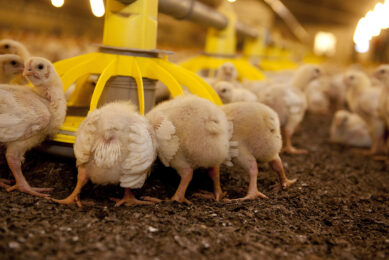
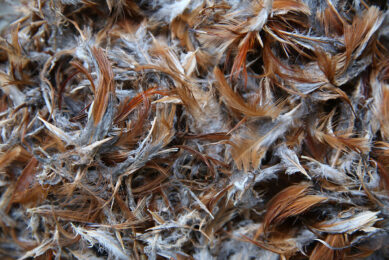
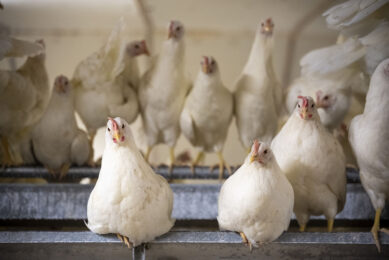
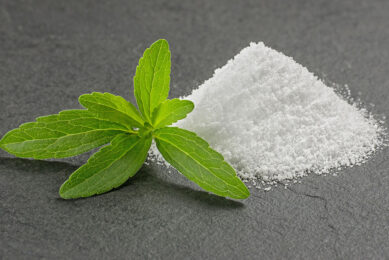




 WP Admin
WP Admin  Bewerk bericht
Bewerk bericht